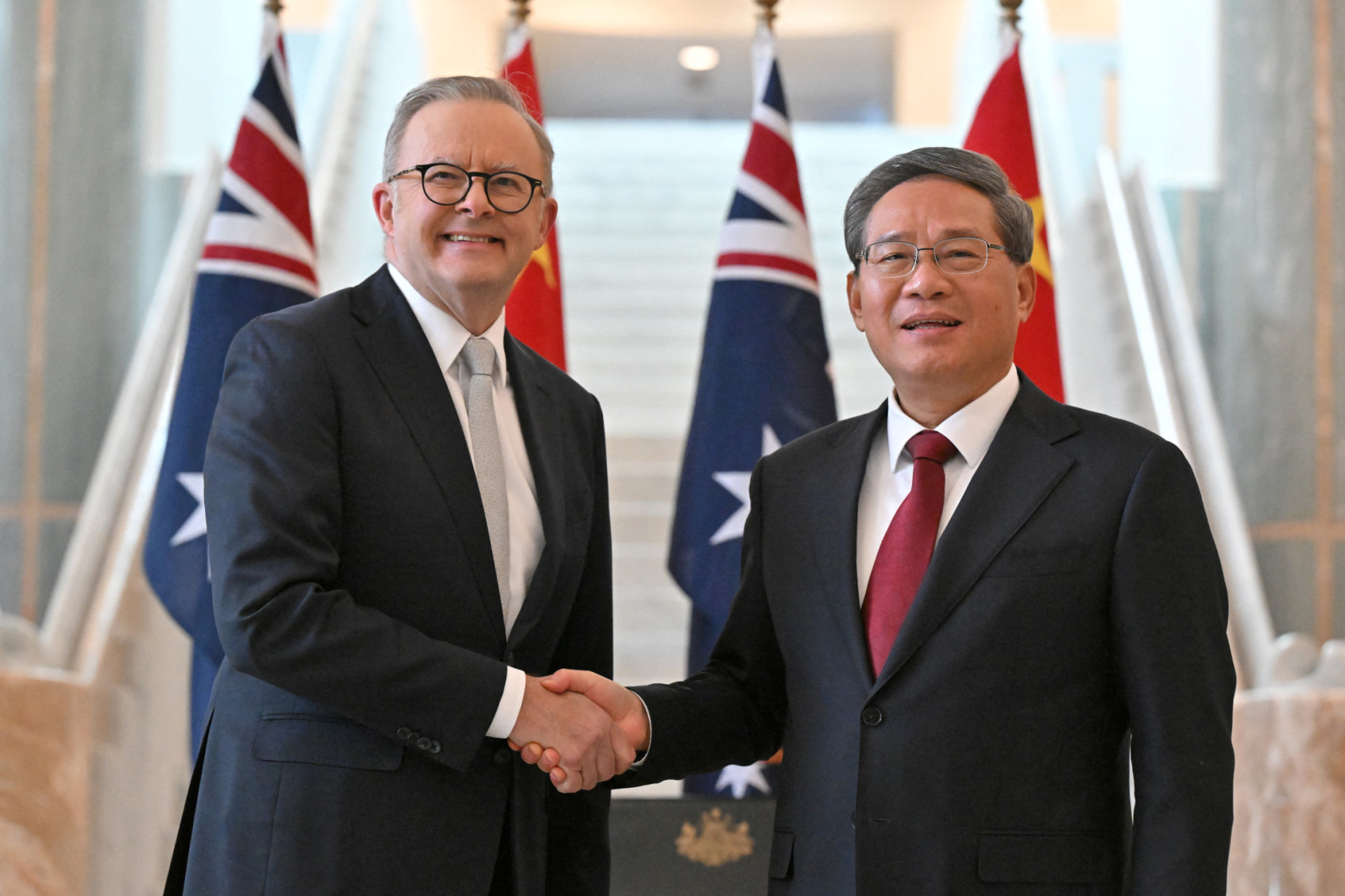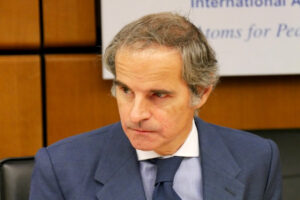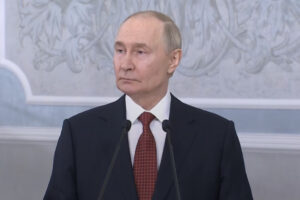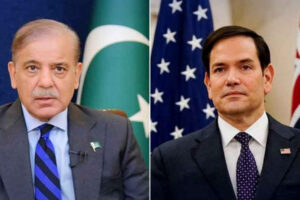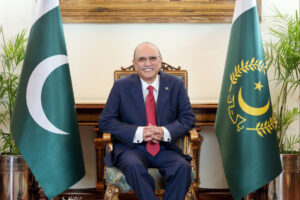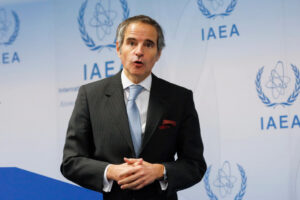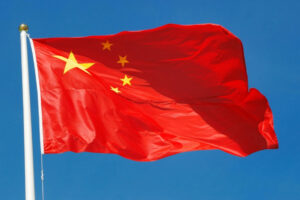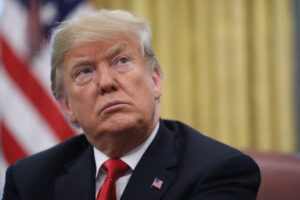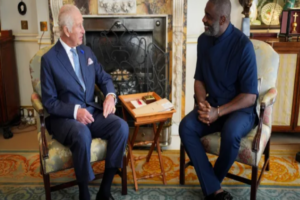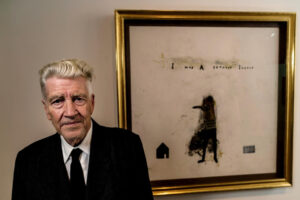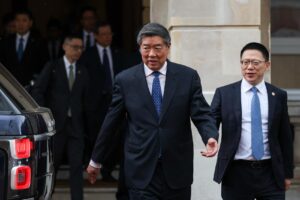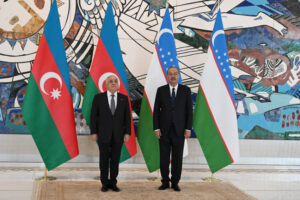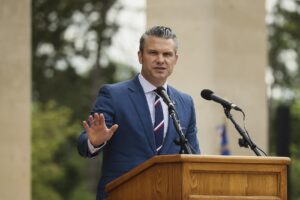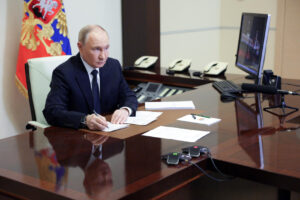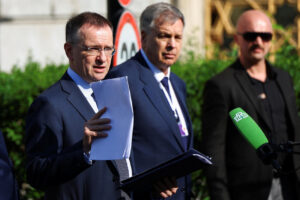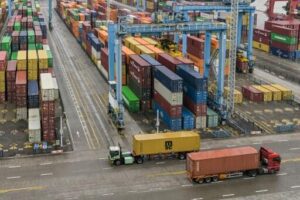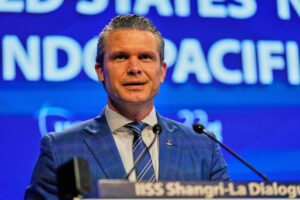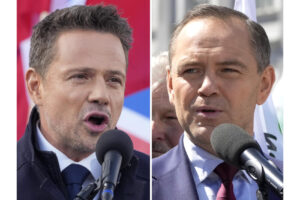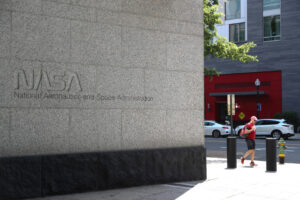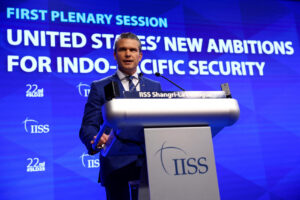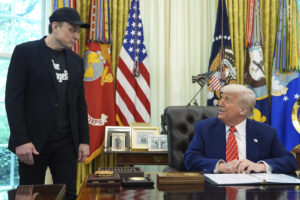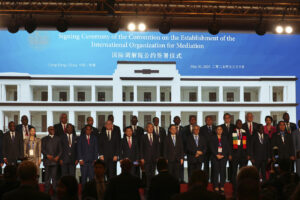Tokyo, 17 June, /AJMEDIA/
Australia’s Prime Minister Anthony Albanese and Chinese Premier Li Qiang met on Monday in the first visit to the country by a Chinese premier in seven years, with trade ties, regional security and a jailed Australian writer on the host’s agenda.
The visit by Li, China’s top-ranked official after President Xi Jinping, marks a stabilization in relations between the U.S. security ally and the world’s second-biggest economy, after a frosty period of Beijing blocking $20 billion in Australian exports and friction over defense encounters.
“We welcome the continued stabilization and development of our bilateral relations. This dialogue has allowed us to build a deeper awareness of our respective interests,” Albanese said in opening remarks.
Australia and China had complementary economies and shared interests in addressing climate change, he said.
“We also have our differences… that’s why candid dialogue is so important. For Australia, we consistently advocate the importance of a region and world that is peaceful, stable and prosperous, where countries respect sovereignty and abide by international laws,” he said.
After the meeting, Li told reporters the leaders held a “candid, in-depth and fruitful meeting and reached a lot of consensus”.
“We both agreed to uphold the right characterization of our bilateral relationship and consolidate its momentum…and handling this relationship in a positive attitude,” he said.
The two countries would expand cooperation in energy and mining, and China would include Australia in its visa waiver program, he added.
“We both stressed the importance of maintaining communication and coordination to jointly safeguard peace and prosperity in the region and beyond,” he said.
Albanese told reporters after the meeting the two countries had revitalized engagement and he was “determined to keep growing our relationship where we can”.
“China remains overwhelmingly Australia’s largest trading partner. Australian farmers, miners and exporters are already seeing the benefits of the removal of trade impediments – benefits that flow to our economy,” he said.
On regional issues, he had told Li that “Australia advocates that we should all work together to promote a regional balance where no country dominates and no country is dominated”.
Protesters and supporters gathered on Monday morning on the lawn outside parliament house in Canberra, where there was a heavy police presence, as a ceremonial welcome was held for Li.
Barricades separated Tibetan, Uyghur, Hong Kong and Falun Gong protesters from a large contingent of pro-China supporters.
Tibetan Tenzin Wougyal, 37, a Canberra resident, said he came to show Tibet’s culture, religion and language are at risk.
“Australia should be cautious about what it is doing — don’t sacrifice human rights for short term economic business,” he said.
Tan Zhu, 50, said he travelled from Sydney to welcome Li, and was also at Canberra airport when he arrived. “The relationship with Australia has become much better. That’s very positive,” he said.
Beginning with some panda and wine diplomacy on Sunday, Li is on a four-day visit.
Trade between Australia and China reached A$327 billion ($215.95 billion) last year as Beijing’s trade blocks eased.
Australia is the biggest supplier of iron ore to China and China has been an investor in Australian mining projects.
Li’s visit will likely raise the issue of whether Australia will continue to accept high levels of Chinese investment in its critical minerals sector, as Western security allies push to reduce reliance on Beijing for the rare earths vital to electric vehicles. Australia last month blocked several Chinese investors from increasing stakes in a rare earths miner on national interest grounds.
Albanese has said he would raise human rights issues in his talks with Li, including the case of China-born Australian writer Yang Hengjun, whose suspended death sentence was upheld by a Beijing court, his supporters said.
They urged Albanese to ask Li to allow Yang’s transfer to Australia on medical grounds, saying in a statement it was “not possible to achieve a stable, respectful bilateral relationship with China while their officials are threatening to execute an Australian political prisoner”.
© Thomson Reuters 2024.

